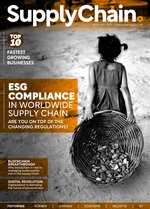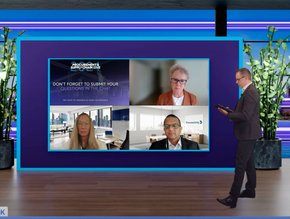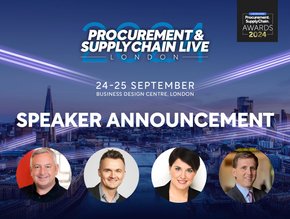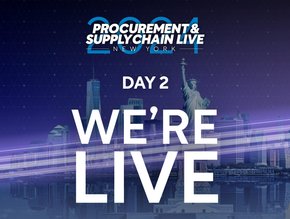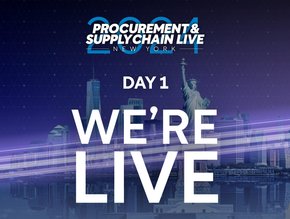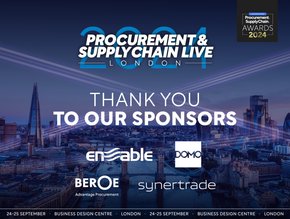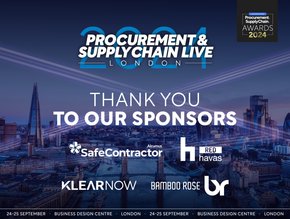Firms struggle with changing supply chain regulations
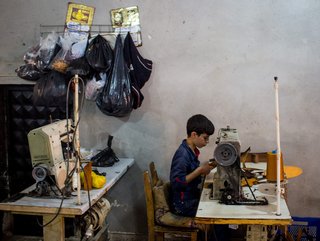
There can be little doubt that the ever evolving supply chain regulatory landscape makes it challenging for organisations to keep pace with changing laws around ESG requirements.
The companies most at risk are those that lack the technical resources and human capital to comply with changing regulations.
Julia Salant is General Solution Manager, Carbon, with EcoVadis, a global provider of sustainability ratings and assessments for companies, based on their environmental, social, and ethical performance.
The company provides a platform for businesses to measure, monitor, and improve their sustainability practices, with the goal of promoting sustainable supply chains and reducing environmental and social risks.
One thorny problem says Salant is that many companies have neither the technical resources nor human capital needed to comply with new and evolving regulations.
“It is challenging for companies to ensure their suppliers are complying with every new regulation,” says Salant, who adds: “Many struggle to assess even top-tier suppliers.”
She says the only solution for companies who want to be confident in their supply chain due diligence is to invest in supply chain ESG monitoring tools. For the fact is, due diligence involves multiple aspects of equal importance.
“We advise clients to focus most of their energy on strong governance frameworks and high-quality data,” says Dr Kevin Franklin, Advisory MD for LRQA, is a leading global assurance partner.
Franklin says many companies see holes in their due diligence efforts because “there is a lack of structure, expertise, accountability, design, tools and weak metrics or monitoring”.
He says successfully managing ESG risks means having a framework “that aligns with your risk appetite, vision and level of commitment, and this is especially the case where it relates to human rights risks and violations”.
He adds that ESG leaders need to be involved in day-to-day business decision-making.
Regarding data, Franklin stresses it’s not just about quantity – such as data on lower tier suppliers – but also quality.
“There is still no better data than that sourced directly from your own operations or suppliers on-the-ground and independently verified, which is especially the case in higher risk markets,” he says. “Transparent and trustworthy due diligence is nearly impossible without quality data and analytics.”
In today’s world, technology providers are playing an increasingly important role in helping organisations be due diligence-compliant.
- Technology providers are equipping companies with the platforms, tools and analytics needed to:
- Design, monitor and enhance the due diligence process
- Map their entire supply chain
- Obtain real-time alerts from grievances and media insights
“To do due diligence properly, one needs a technology and analytics platform that enables real-time monitoring, benchmarking and the mitigation of ESG risks,” says Franklin.
He adds that although many companies do collect data from their suppliers and operations they are storing this information in PDFs, Word documents and Excel files.
Supply chain intelligence platforms, like that of LRQA, deliver actionable insight to enable end-to-end supply chain ESG due diligence.
“It helps you understand your own supply chain as well as identify, prioritise and manage risk to drive business performance and meet regulatory requirements,” Franklin explains.
He adds: “But even in the world of generative AI many of the risks and insights from these platforms still need to be identified and verified on-the-ground, and as yet there is no fully viable alternative to real-world in-person remediation.”
On-the-ground, the reality for those working in supply chain is that new laws are changing the way that supply chains must be planned and vetted if they are not to fall foul of the law. Many of the new regulations have come into effect only in the past year or so.
The Uyghur Forced Labor Prevention Act (UFLPA) was one of the first forced-labour bans to impose a tangible consequence for forced labour violations.
It was a significant milestone for human rights and, saysFranklin has had many positive impacts, including translating the “previously intangible risk of human rights” into dollars and cents, with direct impacts on the bottom line.
He says: “At LRQA we’ve seen millions of dollars’ worth of goods withheld after failing to comply with UFPLA requirements. We’ve also seen media coverage linked to failing to comply with the UFLPA, which then creates a real-world reputational risk for brands.
“Collectively there are examples where this has impacted profitability and has lead to share prices falling and operational disruptions.”
UFLPA, he feels, has also expanded the scope of company programmes, by placing greater emphasis upstream on raw materials.
“He adds: “It’s also brought a number of new stakeholders into the conversation, such as law firms. This has been both positive, but is also challenging, as these new stakeholders figure out scalable roles and responsibilities in a growing ecosystem.”
Then in Europe, there is the German Supply Chain Act (GSCA) and the EU's Corporate Sustainability Due Diligence Directive (CSDDD).
These, say Franklin, will sharpen a company’s focus on their human rights and environmental due diligence, because they require a formal enterprise risk management process that forces companies to manage and report risks, and what they are doing about those risks.
“This is all about walking the walk and not making empty platitudes,” says Franklin. “They must instead demonstrate tangible action, independently verify statements and reports, and work towards a new level of trust and transparency with stakeholders.”
He adds that the EU’s new directive is also one of the few to cover both human rights and environmental impact from value chains.
“It takes a step further than previous reporting requirements by mandating companies demonstrate their risk mitigation strategies,” he says. “We’re in a new era of risk, with a completely new standard of due diligence expected by investors and stakeholders, so it’s time to meet the challenge.”

